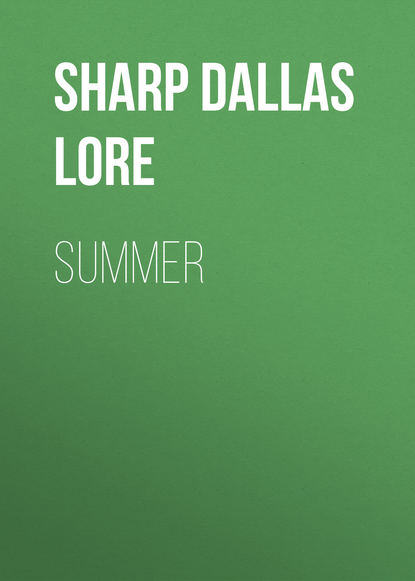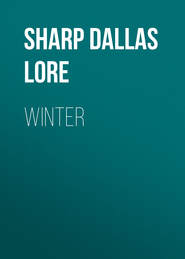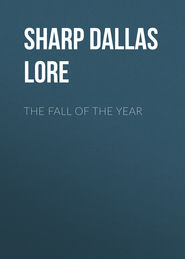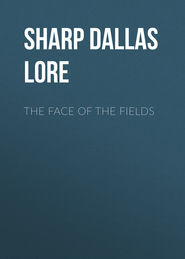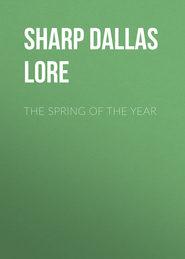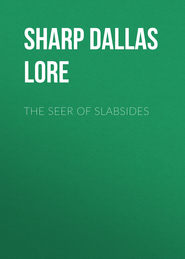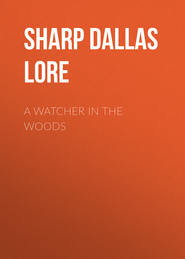По всем вопросам обращайтесь на: info@litportal.ru
(©) 2003-2024.
✖
Summer
Настройки чтения
Размер шрифта
Высота строк
Поля
But, to come back to the larger things of the out-of-doors, you should see the mist some summer morning very early or some summer evening, sheeted and still over a winding stream or pond, especially in the evening when the sun has gone down behind the hill, the flame has faded from the sky, and over the rim of the circling slopes pours the soft, cool twilight, with a breeze as soft and cool, and a spirit that is prayer. For then from out the deep shadows of the wooded shore, out over the pond, a thin white veil will come creeping – the mist, the breath of the sleeping water, the soul of the pond!
X
You should see it rain down little toads this summer —if you can! There are persons who claim to have seen it. But I never have. I have stood on Maurice River Bridge, however, and apparently had them pelting down upon my feet as the big drops of the July shower struck the planks – myriads of tiny toads covering the bridge across the river! Did they rain down? No, they had been hiding in the dirt between the planks and hopped out to meet the sweet rain and to soak their little thirsty skins full.
XI
You should see a cowbird’s young in a vireo’s nest and the efforts of the poor deceived parents to satisfy its insatiable appetite at the expense of their own young ones’ lives! Such a sight will set you to thinking.
XII
I shall not tell you what else you should see, for the whole book could be filled with this one chapter, and then you might lose your forest in your trees. The individual tree is good to look at – the mighty wide-limbed hemlock or pine; but so is a whole dark, solemn forest of hemlocks and pines good to look at. Let us come to the out-of-doors with our study of the separate, individual plant or thing; but let us go on to Nature, and not stop with the individual thing.
CHAPTER IV
THE COYOTE OF PELICAN POINT
“We have stopped the plumers,” said the game-warden, “and we are holding the market-hunters to something like decency; but there’s a pot-hunter yonder on Pelican Point that I’ve got to do up or lose my job.”
Pelican Point was the end of a long, narrow peninsula that ran out into the lake, from the opposite shore, twelve miles across from us. We were in the Klamath Lake Reservation in southern Oregon, one of the greatest wild-bird preserves in the world.
Over the point, as we drew near, the big white pelicans were winging, and among them, as our boat came up to the rocks, rose a colony of black cormorants. The peninsula is chiefly of volcanic origin, composed of crumbling rock and lava, and ends in well-stratified cliffs at the point. Patches of scraggly sagebrush grew here and there, and out near the cliffs on the sloping lava sides was a field of golden California poppies.
The gray, dusty ridge in the hot sun, with cliff swallows and cormorants and the great pouched pelicans as inhabitants, seemed the last place that a pot-hunter would frequent. What could a pot-hunter find here? I wondered.
We were pulling the boat up on the sand at a narrow neck in the peninsula, when the warden touched my arm. “Up there near the sky-line among the sage! What a shot!”
I was some seconds in making out the head and shoulders of a coyote that was watching us from the top of the ridge.
“The rascal knows,” went on the warden, “I have no gun; he can smell a gun clear across the lake. I have tried for three years to get that fellow. He’s the terror of the whole region, and especially of the Point; if I don’t get him soon, he’ll clean out the pelican colony.
“Why don’t I shoot him? Poison him? Trap him? I have offered fifty dollars for his hide. Why don’t I? I’ll show you. Now you watch the critter as I lead you up the slope toward him.”
We had not taken a dozen steps when I found myself staring hard at the place where the coyote had been, but not at the coyote, for he was gone. He had vanished before my eyes. I had not seen him move, although I had been watching him steadily.
“Queer, isn’t it?” said the warden. “It’s not his particular dodge, for every old coyote that has been hunted learns to work it; but I never knew one that had it down so fine as this sinner. There’s next to nothing here for him to skulk behind. Why, he has given my dog the slip right here on the bare rock! But I’ll fix him yet.”
I did not have to be persuaded to stay overnight with the warden for the coyote-hunt the next day. The warden, I found, had fallen in with a Mr. Harris, a homesteader, who had been something of a professional coyote-hunter. Harris had just arrived in southern Oregon, and had brought with him his dogs, a long, graceful greyhound, and his fighting mate, a powerful Russian wolfhound; both were crack coyote dogs from down Saskatchewan. He had accepted the warden’s offer of fifty dollars for the hide of the coyote of Pelican Point, and was now on his way round the lake.
The outfit appeared late the next day, and consisted of the two dogs, a horse and buckboard, and a big, empty dry-goods box.
I had hunted possums in the gum swamps of the South with a stick and a gunny-sack, but this rig, on the rocky, roadless shores of the lake – a dry-goods box for coyotes! – beat any hunting combination I had ever seen.
We had pitched the tent on the south shore of the point where the peninsula joined the mainland, and were finishing our supper, when not far from us, back on shore, we heard the doleful yowl of the coyote.
We were on our feet in an instant.
“There he is,” said the warden, “lonesome for a little play with your dogs, Mr. Harris.”
There was still an hour and a half of good light, and Harris untied his dogs. I had never seen the coyote hunted, and was greatly interested. Harris, with his dogs close in hand, led us directly away from where we had heard the coyote bark. Then we stopped and sat down. At my look of inquiry, Harris smiled.
“Oh, no, we’re not after coyotes to-night, not that coyote, anyhow,” he said. “You know a coyote is made up of equal parts of curiosity, cowardice, and craft; and it’s a long hunt unless you can get a lead on his curiosity. We are not out for him. He sees that. In fact, we’ll amble back now – but we’ll manage to get up along the crest of that little ridge where he is sitting, so that the dogs can follow him whichever way he runs. You hunt coyotes wholly by sight, you know.”
The little trick worked perfectly. The coyote, curious to see what we were doing, had risen to his feet, and stood, plainly outlined against the sky. He was entirely unsuspecting, and as we approached, only edged and backed, more apparently to get a sight of the dogs behind us than through any fear.
Suddenly Harris stepped from before the dogs, pointed them toward the coyote, and slipped their leashes. The hounds were trained to the work. There was just an instant’s pause, a quick yelp, then two doubling, reaching forms ahead of us, with a little line of dust between.
The coyote saw them coming, and started to run, not hurriedly, however, for he had had many a run before. He was not afraid, and kept looking behind to see what manner of dog was after him this time.
But he was not long in making up his mind that this was an entirely new kind, for in less than three minutes the hounds had halved the distance that separated him from them. At first, the big wolfhound was in the lead. Then, as if it had taken him till this time to find all four of his long legs, the greyhound pulled himself together, and in a burst of speed that was astonishing, passed his heavier companion.
We raced along the ridge to see the finish. But the coyote ahead of the dogs was no novice. He knew the game perfectly. He saw the gap closing behind him. Had he been young, he would have been seized by fear; would have darted right and left, mouthing and snapping in abject terror. Instead of that, he dug his nails into the shore, and with all his wits about him, sped for the desert. The greyhound was close behind him.
X
You should see it rain down little toads this summer —if you can! There are persons who claim to have seen it. But I never have. I have stood on Maurice River Bridge, however, and apparently had them pelting down upon my feet as the big drops of the July shower struck the planks – myriads of tiny toads covering the bridge across the river! Did they rain down? No, they had been hiding in the dirt between the planks and hopped out to meet the sweet rain and to soak their little thirsty skins full.
XI
You should see a cowbird’s young in a vireo’s nest and the efforts of the poor deceived parents to satisfy its insatiable appetite at the expense of their own young ones’ lives! Such a sight will set you to thinking.
XII
I shall not tell you what else you should see, for the whole book could be filled with this one chapter, and then you might lose your forest in your trees. The individual tree is good to look at – the mighty wide-limbed hemlock or pine; but so is a whole dark, solemn forest of hemlocks and pines good to look at. Let us come to the out-of-doors with our study of the separate, individual plant or thing; but let us go on to Nature, and not stop with the individual thing.
CHAPTER IV
THE COYOTE OF PELICAN POINT
“We have stopped the plumers,” said the game-warden, “and we are holding the market-hunters to something like decency; but there’s a pot-hunter yonder on Pelican Point that I’ve got to do up or lose my job.”
Pelican Point was the end of a long, narrow peninsula that ran out into the lake, from the opposite shore, twelve miles across from us. We were in the Klamath Lake Reservation in southern Oregon, one of the greatest wild-bird preserves in the world.
Over the point, as we drew near, the big white pelicans were winging, and among them, as our boat came up to the rocks, rose a colony of black cormorants. The peninsula is chiefly of volcanic origin, composed of crumbling rock and lava, and ends in well-stratified cliffs at the point. Patches of scraggly sagebrush grew here and there, and out near the cliffs on the sloping lava sides was a field of golden California poppies.
The gray, dusty ridge in the hot sun, with cliff swallows and cormorants and the great pouched pelicans as inhabitants, seemed the last place that a pot-hunter would frequent. What could a pot-hunter find here? I wondered.
We were pulling the boat up on the sand at a narrow neck in the peninsula, when the warden touched my arm. “Up there near the sky-line among the sage! What a shot!”
I was some seconds in making out the head and shoulders of a coyote that was watching us from the top of the ridge.
“The rascal knows,” went on the warden, “I have no gun; he can smell a gun clear across the lake. I have tried for three years to get that fellow. He’s the terror of the whole region, and especially of the Point; if I don’t get him soon, he’ll clean out the pelican colony.
“Why don’t I shoot him? Poison him? Trap him? I have offered fifty dollars for his hide. Why don’t I? I’ll show you. Now you watch the critter as I lead you up the slope toward him.”
We had not taken a dozen steps when I found myself staring hard at the place where the coyote had been, but not at the coyote, for he was gone. He had vanished before my eyes. I had not seen him move, although I had been watching him steadily.
“Queer, isn’t it?” said the warden. “It’s not his particular dodge, for every old coyote that has been hunted learns to work it; but I never knew one that had it down so fine as this sinner. There’s next to nothing here for him to skulk behind. Why, he has given my dog the slip right here on the bare rock! But I’ll fix him yet.”
I did not have to be persuaded to stay overnight with the warden for the coyote-hunt the next day. The warden, I found, had fallen in with a Mr. Harris, a homesteader, who had been something of a professional coyote-hunter. Harris had just arrived in southern Oregon, and had brought with him his dogs, a long, graceful greyhound, and his fighting mate, a powerful Russian wolfhound; both were crack coyote dogs from down Saskatchewan. He had accepted the warden’s offer of fifty dollars for the hide of the coyote of Pelican Point, and was now on his way round the lake.
The outfit appeared late the next day, and consisted of the two dogs, a horse and buckboard, and a big, empty dry-goods box.
I had hunted possums in the gum swamps of the South with a stick and a gunny-sack, but this rig, on the rocky, roadless shores of the lake – a dry-goods box for coyotes! – beat any hunting combination I had ever seen.
We had pitched the tent on the south shore of the point where the peninsula joined the mainland, and were finishing our supper, when not far from us, back on shore, we heard the doleful yowl of the coyote.
We were on our feet in an instant.
“There he is,” said the warden, “lonesome for a little play with your dogs, Mr. Harris.”
There was still an hour and a half of good light, and Harris untied his dogs. I had never seen the coyote hunted, and was greatly interested. Harris, with his dogs close in hand, led us directly away from where we had heard the coyote bark. Then we stopped and sat down. At my look of inquiry, Harris smiled.
“Oh, no, we’re not after coyotes to-night, not that coyote, anyhow,” he said. “You know a coyote is made up of equal parts of curiosity, cowardice, and craft; and it’s a long hunt unless you can get a lead on his curiosity. We are not out for him. He sees that. In fact, we’ll amble back now – but we’ll manage to get up along the crest of that little ridge where he is sitting, so that the dogs can follow him whichever way he runs. You hunt coyotes wholly by sight, you know.”
The little trick worked perfectly. The coyote, curious to see what we were doing, had risen to his feet, and stood, plainly outlined against the sky. He was entirely unsuspecting, and as we approached, only edged and backed, more apparently to get a sight of the dogs behind us than through any fear.
Suddenly Harris stepped from before the dogs, pointed them toward the coyote, and slipped their leashes. The hounds were trained to the work. There was just an instant’s pause, a quick yelp, then two doubling, reaching forms ahead of us, with a little line of dust between.
The coyote saw them coming, and started to run, not hurriedly, however, for he had had many a run before. He was not afraid, and kept looking behind to see what manner of dog was after him this time.
But he was not long in making up his mind that this was an entirely new kind, for in less than three minutes the hounds had halved the distance that separated him from them. At first, the big wolfhound was in the lead. Then, as if it had taken him till this time to find all four of his long legs, the greyhound pulled himself together, and in a burst of speed that was astonishing, passed his heavier companion.
We raced along the ridge to see the finish. But the coyote ahead of the dogs was no novice. He knew the game perfectly. He saw the gap closing behind him. Had he been young, he would have been seized by fear; would have darted right and left, mouthing and snapping in abject terror. Instead of that, he dug his nails into the shore, and with all his wits about him, sped for the desert. The greyhound was close behind him.





